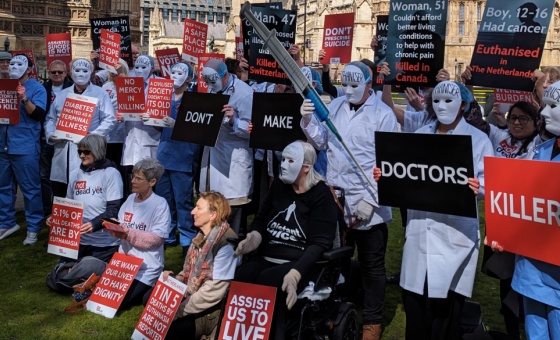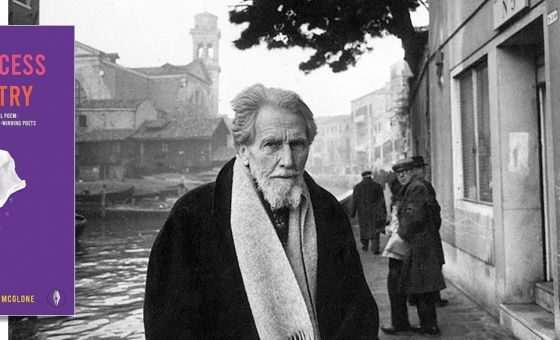This is the last article you can read this month
You can read more article this month
You can read more articles this month
Sorry your limit is up for this month
Reset on:
Please help support the Morning Star by subscribing here
HOW many feminists does it take, to make a joke?
Only one: she is the joke.
Retired professor and editor Merrie Bergmann wrote that, nearly 40 years ago, in the academic journal Hypatia. Named after the Egyptian philosopher and mathematician of the 4th century AD, the publication focused on philosophy and women’s studies. It’s ironic that the former topic is still a vibrant area of study, while the latter is being consigned to the dustbin of history.
Bergmann wrote: “We have countless jokes about dumb blondes, scatter-brained redheads, mothers-in-law, lady drivers. Because she is a woman, a feminist is an amusing creature indeed.”
We don’t have to look far for sexist comments and jokes now; the online world is often a cesspit of misogyny. Even if we were to cloister ourselves from the internet, we’d still have 101 incidents of sexism in any given week — more, if we dare to stand on our hind legs and speak out.
If you ask girls and women about sexism, brace yourself; you’ll be inundated. And some themes emerge: we older ones have been suffering this shit for decades, and we’re sick to death of it. What feels worse, girls run the gauntlet every day, at school, and it may well damage their mental health.
So, what is it, then, this “ism”? The clue is in that prefix: it’s the myriad ways in which women, as a sex, are reminded of what our culture thinks of us. In the workplace, education and public spaces, it’s wall-to-wall sexism, morning, noon and bloody night. If you think that’s an exaggeration, I’d suggest you’re not allowing for the amount of sexist behaviour we shrug off.
The Council of Europe’s definition says that sexism in the workplace includes: derogatory comments, objectification, sexist humour or jokes, overfamiliar remarks, silencing or ignoring people, gratuitous comments about dress and physical appearance, sexist body language, lack of respect, and masculine practices which intimidate or exclude women and favour fellow men.
I asked a range of girls and women about examples of sexism experienced, and its effects. We also talked about how we should tackle it, perhaps directly, or whether we eschew these smaller battles, to save energy for a bigger fight.
Naturally, we asked a lot of women and girls for their views. I also asked four men for their responses to sexism I’d experienced. Not a random cohort, these were all left-wing and consider themselves feminist allies. The sexism ranged from being patronised, expected to make the tea, being constantly talked over at a meeting, to creepy innuendo and threatening behaviour.
The men’s views? “I bet you didn’t stand for that!” and “I expect you made him look very small indeed,” and the surreal, “You used to play rugby, right? I hope you offered to ‘convert’ him!”
Then I told them that the males in question were my previous GP, a former boss, a union official, a taxi driver taking me back to my hotel in a strange city late at night, and five drunken teenagers on the last train home.
Context is important. Many women are ready to stand up for ourselves, and for other women. But we’re not reckless. There are real dangers, and we have a duty to ourselves to stay safe, if we can. A sexist “joke” or provocative comment can escalate damn fast.
The teenagers, in a frenzy because I gave them “a look,” had a ringleader. He recognised me and said: “Your neighbour got done in, eh? You’ll end up like her,” a reference to 19-year-old Marsha McDonnell murdered in 2003 by a serial killer.
A big theme to emerge from the conversation with other women is a vital one: we older ones might have learned to keep an eye on our safety, more than we did as youngsters. One woman in her forties told me: “I’ve put up with them shouting ‘slag’ and even spitting at me. Half of them are boys I’ve taught. But some of them carry knives. I’m not taking a chance; I’ve got a family to take care of.”
The charity Young Women’s Trust investigated the effects of sexism and found that those aged 16-30 were most likely to experience sexism, with a greater impact on their mental health.
This happened at school/work, on public transport, in taxis, and outside on the street, with 82 per cent of those experiencing sexism facing street harassment. Young women who had experienced sexism (including attacks or threats) were five times more likely to experience depression than those that hadn’t, and even four years later they still reported greater psychological distress.
The 2019 report found that sexism was more strongly associated with depression, poor mental functioning, poor life satisfaction, fair/poor self-rated health and reports of limiting, longstanding illness in women aged 16-30 than in the overall sample (aged 16-93).
One respondent told them: “I think young women are seen as an easier target; I think people assume they will be less likely to stand up for themselves. I also think they’re generally more likely to be viewed as naive, leading to people acting more condescending towards them.”
Another said: “I dreaded going to work every morning, and it took its toll on both my mental and physical health, and I became a shell of the person I once was.”
I started our discussion with Geraldine, former psychologist, now in her mid-seventies.
“When I was 11, a disgusting-looking man stopped me on my way to school and said ‘Get down and suck it’ right into my ear. I didn’t even know what he meant, but I knew to be very frightened.
“For a real incident of sexism, my interview for a teaching job at age 30 in 1976. The head teacher said ‘Do you not think a full-time job is too much for a single mother?’ (I was already a regular Spare Rib reader and later spent December 12 1984 at Greenham Common). I answered with my sweetest smile ‘Actually, it is easier for me as I don’t have a husband to look after.’ It was the language he understood, and I got the job. I needed that job. Play them at their own game!
“Each thing on its own can be gaslighted away as ‘banter’ or ‘trivial’ or a ‘misunderstanding’ but when it is drip, drip, drip over the years, it can feel suffocating and exhausting, having to swim against the tide for your whole life.”
Fiona recalls a time when she was cabin crew: “I was lucky in a sense to work in environments more positive to women — British Airways, for example. Although I do remember when it was announced that the captain flying the plane was a woman (she was one of the first female pilots) there were some serious gasps in the cabin!”
Barbara, former teacher, 74, recalled: “Female members of staff were considered to be the lowest of the low, not only by the teenage boys but also by some of the male teachers. There were no female heads of department and none within senior management. Some of the men on the staff were extremely rude to their female colleagues in front of the children. If several members of staff wanted to use a particular piece of equipment, the men invariably got to use it first.”
We discussed ways to tackle sexism. One approach comes from the Fawcett Society; they want parliamentary candidates to sign a pledge to a zero-tolerance approach to misogyny and racist misogyny at the upcoming election.
Barbara doubted its efficacy: “Can attitudes be legislated against? The Fawcett Society’s suggestion would not work. Misogyny is often subconscious, much like racism. More importantly, MPs’ role is to protect the interests of the capitalist class, who, for example, would wish the gender pay gap to remain as long as possible.
“In addition, doesn’t social change occur from the grassroots up? To me, misogyny will only truly disappear with a fundamental change in society. Many socialists see any attempt to make changes within capitalism as reformism and therefore counterproductive.”
The maxim that the personal is political, connecting women’s experiences to the political imperative, is a specific problem for mothers.
Almudena, art history lecturer, 53, has two young children. She says: “Ten years ago, when trying to negotiate a pay rise with the (male) manager, l was aware that male professors were paid more than me. When l raised the topic, l was told that they had a family to support, and l didn’t. However, l was the only one with a doctorate.
“While teaching at another university, six years ago, my baby was hospitalised with pneumonia for four days. I had to stay at the hospital with the baby, while my husband looked after our toddler at home. I had to cancel two lectures but l was in constant communication by email with the students. I was told by the (male) head of department that since students had complained, it would be best if l took a break and returned when my baby was better.
“It is majorly important that those women who choose to be mothers have the support from society and the institutions to be able to keep contributing to society while being an attentive parent.”
Another theme from this discussion is the extra discrimination, added on because we’re either too young or too old.
Julia, journalist, 73, says: “A lot of the sexism I experience nowadays is laced through with ageism, and the combination of the two more than doubles the insult. It startles me, just how invisible older women are, and, in the street, men regularly seem to try to walk through me, shoving me to one side, without even acknowledging my presence, let alone apologising.
“But there is the more subtle sexism, often expressed by men who are genuinely doing their best not to be oppressive, but can’t extract themselves from the culture. I was talking to a friend recently about a major historical event and he said: ‘It’s terrible that there were no women involved.’ I said: ‘There were women involved.’ He said: ‘No. Look at these names — all men.’ I said: ‘But the women were there — sweeping the floor, doing the washing, making the meals ...’
“This is good, old-fashioned, second-wave feminism. We need to keep reminding the world that we’ve been there all along and aren’t going away.”
If you’ve read this far, these next powerful voices of a much younger generation should galvanise you to action. If not, I suggest that you are part of the problem.
Anna, 14, said: “I was catcalled on my way home from the last day of year nine, while in school uniform. He knew I was underage, and he recognised that I wasn’t allowed to talk to strangers, yet chose to do it anyway.
“A man catcalling me, a minor, right outside my house makes me feel like my street isn’t as safe a place as it should be. Someone making rape jokes in a lesson makes me feel unsafe around school in general, especially if a teacher then tells the victim that ‘boys will be boys.’ It gives the impression that my rights aren’t protected or respected by males, simply because I’m a girl and impacts my quality of life and education if I am not able to feel safe where I should.”
Sophie, 11, added: “I’ve experienced and witnessed so many, quite frankly disgusting, forms of sexism. Most of these occurred at school, seeing as this is where most of my time is spent.
“A lot has been based around periods. If a girl ever asks to go to the toilet, a few of the boys will make eye-contact and start laughing. This is rarely dealt with.”
For me, this is heart-breaking, and infuriating. So, as we celebrate another International Women’s Day: sexism is real, it’s exhausting, it’s damaging, it’s spoiling our lives. I ask, both women and men: What are you doing about it?










